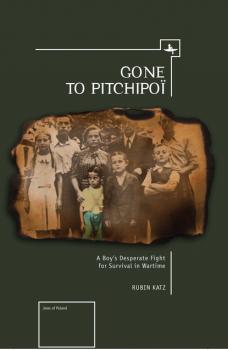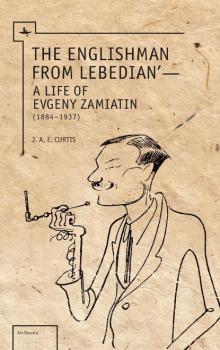ТОП просматриваемых книг сайта:
Биографии и Мемуары
Различные книги в жанре Биографии и Мемуары, доступные для чтения и скачиванияIvan Konevskoi - Joan Delaney Grossman
Studies in Russian and Slavic Literatures, Cultures, and HistoryАннотация
Ivan Konevskoi: “Wise Child” of Russian Symbolism is the first study in any language of Ivan Konevskoi – poet, thinker, mystic— – for many decades the “lost genius” of Russian modernism. A fresh and compelling figure, Konevskoi plunged deeply into the currents of modern mystical thought and art in the 1890s. A passionate searcher for immortality, he developed his own version of pantheism meant to guard his unique persona from dissolution in the All-One. The poetry of Tiutchev, Vladimir Solov’ev Soloviev and Rossetti, William James’s psychology, paintings of Pre-Raphaelites and Arnold Boecklin, Old Russian historical myth, the Finnish Kalevala: all engaged him during his brief life. His worldview grew more audacious, his confidence in the magical power of the word grew more assured. Drowning in 1901 at 23, Konevskoi left a legacy unfinished, rich, and intriguing.
Информация о книге
Автор произведения Joan Delaney Grossman
Жанр Биографии и Мемуары
Серия Studies in Russian and Slavic Literatures, Cultures, and History
Аннотация
This vivid and moving memoir describes the survival of a Jewish child in the hell of Nazi occupied Poland. Rubin Katz was born in Ostrowiec Świętokrzyskie, Poland, in 1931. This town, located in the picturesque countryside of central Poland 42 miles south of Radom, had in 1931 a population of nearly 30,000, of whom more than a third were Jews. The persistence of traditional ways of life and the importance of the local hasidic rebbe, Yechiel-Meier (Halevi) Halsztok, as well as the introduction of such modernities as bubble gum, are clearly and effectively described here. This memoir is remarkable for the ability of its author to recall so many events in detail and for the way he is able to be fair to all those caught up in the tragic dilemmas of those years. It is a major contribution to our understanding of the fate of Jews in smaller Polish towns during the Second World War and the conditions which made it possible for some of them, like Rubin, to survive.
Аннотация
The Goalkeeperis a new scholarly almanac devoted to the art of Vladimir Nabokov. Himself an ardent goalkeeper, the author of Lolita viewed soccer as more than a game: “I was less the keeper of a soccer goal than the keeper of a secret” (Speak, Memory). The inaugural collection features contributions from two dozen leading Nabokov scholars worldwide, including academic articles (Neil Cornwell, Gerard de Vries, Samuel Schuman, and others); roundtable discussions (Brian Boyd, Jeff Edmunds, Priscilla Meyer, David Rampton, Leona Toker); interviews (Dmitri Nabokov, Alvin Toffler); archival materials; the Kyoto Nabokov conference report; and book reviews (Pekka Tammi, Zoran Kuzmanovich, Galya Diment). The Nabokov Almanac, edited by Yuri Leving, is affiliated with the Nabokov Online Journal, published since 2007.
Аннотация
After Evgeny Zamiatin emigrated from the USSR in 1931, he was systematically airbrushed out of Soviet literary history, despite the central role he had played in the cultural life of Russia’s northern capital for nearly twenty years. Since the collapse of the Soviet Union, his writings have gradually been rediscovered in Russia, but with his archives scattered between Russia, France, and the USA, the project of reconstructing the story of his life has been a complex task. This book, the first full biography of Zamiatin in any language, draws upon his extensive correspondence and other documents in order to provide an account of his life which explores his intimate preoccupations, as well as uncovering the political and cultural background to many of his works. It reveals a man of strong will and high principles, who negotiated the political dilemmas of his day—including his relationship with Stalin—with great shrewdness.
Аннотация
In Creating the Empress, Vera Proskurina examines the interaction between power and poetry in creating the imperial image of Catherine the Great, providing a detailed analysis of a wide range of Russian literary works from this period, particularly the main Classical myths associated with Catherine (Amazon, Astraea, Pallas Athena, Felicitas, Fortune, etc.), as well as how these Classical subjects affirmed imperial ideology and the monarch’s power. Each chapter of the book revolves around the major events of Catherine’s reign (and some major literary works) that give a broad framework to discuss the evolution of important recurring motifs and images.
Аннотация
Dostoevsky and Tolstoy are the titans of Russian literature. As mature artists, they led very different lives and wrote vastly different works, but their early lives and writings display provocative kinships, while also indicating the divergent paths the two authors would take en route to literary greatness. The ten new critical essays here, written by leading specialists in nineteenth-century, Russian literature, give fresh, sophisticated readings to works from the first decade of the literary life of each Russian author—for Dostoevsky, the 1840s; for Tolstoy, the 1850s. Collectively, these essays yield composite portraits of these two artists as young men finding their literary way. At the same time, they show how the early works merit appreciation for themselves, before their authors were Titans.
Аннотация
“This is a truly inspirational book about the incredible people who risk their lives to save others.” –Sadie Trombetta, Bustle Mountain search-and-rescue volunteer Bree Loewen’s to-do list isn’t quite the same as most people’s. On any given day, it might include: Go grocery shopping Bake pie seen on Pinterest Figure out what to do with my life Rescue climbers caught in avalanche on Chair Peak Pick up Vivi at Mom’s A former Mount Rainier climbing ranger and trained leader in mountain search-and-rescue, Bree shares the drama and the camaraderie of this work, as well as the challenges of trying to fit her other roles as wife and mother into what is still largely a masculine environment. In a fearless voice—disarming yet laced with dark humor—Bree guides us through intense recoveries, vivid wilderness landscapes, and the warmth she discovers in motherhood, community, and purpose.
Аннотация
A general overview of the last Ottoman years of what became the modern Middle East and the genesis of its crises.First time memoirs of various Turkish actors – Ottoman military and civilian officials, eminent intellectuals of the Ottoman and the Republican eras including a woman, which gives a gender dimension – reflecting the twilight of the Ottoman Empire in the Middle East in English.New perspectives on controversial figures such as Jamal Pacha and Khalide EdibAnnotation and cross referencing with the recent publications on the Great War in the Middle East.Easily readable.Unique insight into mind set of rulers and ruled.A contribution to the whole idea of collective memory in the region.
Аннотация
The coming of age story of an award-winning translator, HOMESICK is about learning to love language in its many forms, healing through words and the promises and perils of empathy and sisterhood.
Sisters Amy and Zoe grow up in Oklahoma where they are homeschooled for an unexpected reason: Zoe suffers from debilitating and mysterious seizures, spending her childhood in hospitals as she undergoes surgeries. Meanwhile, Amy flourishes intellectually, showing an innate ability to glean a world beyond the troubles in her home life, exploring that world through languages first. Amy’s first love appears in the form of her Russian tutor Sasha, but when she enters university at the age of 15 her life changes drastically and with tragic results.
Sisters Amy and Zoe grow up in Oklahoma where they are homeschooled for an unexpected reason: Zoe suffers from debilitating and mysterious seizures, spending her childhood in hospitals as she undergoes surgeries. Meanwhile, Amy flourishes intellectually, showing an innate ability to glean a world beyond the troubles in her home life, exploring that world through languages first. Amy’s first love appears in the form of her Russian tutor Sasha, but when she enters university at the age of 15 her life changes drastically and with tragic results.
Аннотация
This memoir by a debut writer explores the unique experiences of children who grow up surrounded by a culture that is different than the culture of their parents–third-culture kids, who never belong in either their parents' culture or the culture that surrounded and nourished them as children. It also explores the distinct shame, sorrow, heritage, joys, and spiritual realities of people whose parents made full-time careers in religious work. Should interest readers of memoirs of growing up in Africa (like Alexandra Fuller), growing up outside of your parents' home culture, spiritual memoirs, and memoirs about finding home, finding a place where you belong. The memoir also explores universal themes of mother-daughter and sister relationships, examining expectations for women's behavior that persist well into the present.










